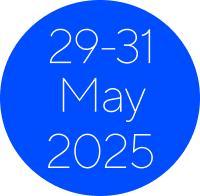Chair: Jean-Francois Esculier (Canada)
Speakers: Jackie Whittaker (Canada), Yuichi Takata (Japan)
- Participants will be able to (1) Explain the latest evidence about running and knee joint health
- Participants will be able to (2) Formulate concrete practical advice (e.g. amount of running, running technique, shoes) to optimize knee loading in runners with and without knee osteoarthritis
-
Participants will be able to (3) Utilize tested educational resources about running and knee joint health
Running is one of the most popular physical activities globally. It has many known benefits on physical and psychological health. The accessibility of running makes it an ideal way to maintain or improve health regardless of age or socioeconomic status.
Unfortunately, running is often perceived as being detrimental for knee joint health. Half of participants who responded to a recent international multilingual survey perceived long-distance running as an activity that increases the risk of developing knee osteoarthritis [1]. Knee osteoarthritis, which becomes more prevalent as populations get older, is defined as a disorder of joints initiated by micro- and macro-injury that activates maladaptive repair responses. Considering the high amount of force applied on the knees during running, such negative perceptions are not entirely surprising.
The latest research, however, does not support the association between recreational running and knee osteoarthritis. Running is generally well tolerated by lower limb joints, whether it is a single bout or a full running program [2]. Repetitive impact has even been shown to trigger positive adaptations in the knee cartilage of novice runners [3]. In fact, sedentary individuals (non-runners) have three times more knee and hip osteoarthritis than recreational runners [4]. A history of running has even been associated with lower odds of requiring total joint replacement surgery [5]. Thus, recreational running does NOT appear to be harmful for the knees [6] – it might actually represent a powerful tool to maintain healthy joints throughout the lifespan.
In this session, the speakers will present the latest available evidence about running and knee joint health, both for young healthy people, and for older people at risk of or with knee osteoarthritis. Importantly, based on their research and clinical expertise, they will suggest concrete practical applications:
Resources to help physical therapists disseminate information about joint health to promote running participation (e.g. a multilingual educational resource tested in a large-scale study [7]; Japanese book about healthy ageing [8]) and identify barriers and facilitators.
Advice to optimize joint health in runners with and without knee osteoarthritis (e.g. amount of running, running technique, shoes)[9,10].
Throughout the session, the speakers will engage with the audience and hopefully inspire attendees in promoting running as a safe activity for all ages in their community.
RELEVANCE & IMPLICATIONS
Recreational running is a highly popular activity that can improve the health of populations globally, at almost no cost. Uncertainty about the safety of running for knee joint health may preclude some individuals from taking on running, or from continuing to run as they age or after a diagnosis of knee osteoarthritis. Unfortunately, negative perceptions are likely not due to an evidence gap, but rather a knowledge translation gap.
This focused symposium will provide arguments for physical therapists to promote and support accessible physical activity through running, using resources tested in different countries. This is especially important as the world population (including Japan) is getting older. The multilingual resources presented in this session will help improve health literacy about running and knee joint health.
- Esculier JF, Besomi M, De Oliveira Silva D, et al. Do the general public and healthcare professionals think running is bad for the knees? A cross-sectional international multi-language online survey. Orthop J Sports Med 2022;10(9):23259671221124141.
- Khan MCM, O’Donovan J, Charlton JM, Roy JS, Hunt MA, Esculier JF. The Influence of Running on Lower Limb Cartilage: A Systematic Review and Meta-analysis. Sports Med 2022;52(1):55-74.
- Van Ginckel A, Baelde N, Almqvist KF, Roosen P, McNair P, Witvrouw E. Functional adaptation of knee cartilage in asymptomatic female novice runners. Osteoarthritis Cartilage 2010;18:1564-1569.
- Alentorn-Geli E, Samuelsson K, Musahl V, Green CL, Bhandari M, Karlsson J. The association of recreational and competitive running with hip and knee osteoarthritis: a systematic review and meta-analysis. J Orthop Sports Phys Ther 2017;47(6):373-390.
- Timmins KA, Leech RD, Batt ME, Edwards KL. Running and Knee Osteoarthritis: A Systematic Review and Meta-analysis. Am J Sports Med 2017;45(6):1447-1457.
- Esculier JF, Barton C. Recreational running is not bad for healthy people’s joints – it is time to study the safety of running in people with osteoarthritis. Osteoarthritis Cartilage 2023;31(2):135-137.
- Besomi M, Hunt MA, De Oliveira Silva D, et al. An online evidence-based educational resource about running and knee health is considered useful and can effectively change perceptions. JOSPT Open 2024:Accepted.
- Takata Y. How to live healthy for 100 years. Maruzen Planet, Japan. 196p. Published March 31st 2022.
- Esculier JF, Charlton JM, Krowchuk NM, De Pieri J, Hunt MA. Immediate Effects of Manipulating Footwear or Cadence on the Lower Limb Biomechanics of Female Masters Runners. J Appl Biomech 2022;38(5):312-319.
- Esculier JF, Jarrett M, Krowchuk NM, et al. Cartilage recovery in runners with and without knee osteoarthritis: A pilot study. Knee 2019;26(5):1049-1057.
See the 24 focused symposia to be presented at congress.
Find out who the key speakers at congress will be.
Find out which clinical topics will be covered in these discussion-based seminars.




